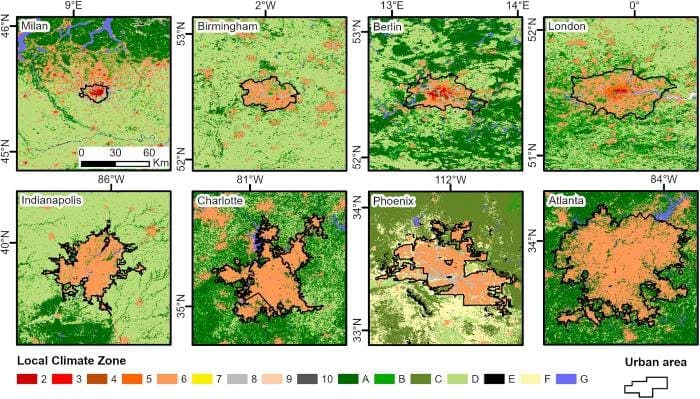Recent research shows that summer storms tend to be more frequent and intense over urban areas compared to rural surroundings, raising concerns about the increased risk of flooding in cities.
According to a study published in Earth’s Future, urban areas experience more storms with concentrated rainfall, especially in larger cities, as urban growth and climate change alter weather patterns.
The research, led by Herminia Torelló-Sentelles, an atmospheric scientist at the University of Lausanne, analyzed storm formation and intensity across eight cities in Europe and the U.S.

The findings suggest that cities may face heightened flood risks as expanding urban areas intensify storm systems. “Being able to quantify urban flood risk is important for urban planning and when designing urban drainage systems,” said Torelló-Sentelles.
The study’s data, spanning seven years of high-resolution weather observations, reveals that larger cities can generate more powerful storms than smaller ones. In cities like Milan, London, and Indianapolis, storms over urban areas tend to produce concentrated bursts of rainfall, overwhelming city drainage systems and increasing the likelihood of floods.
These effects, Torelló-Sentelles explained, may be caused by urban heat islands – cities tend to be warmer than their vegetated surroundings, which can lead to rising air and cloud formation over city centers. City skylines also act like mountain ranges, promoting air uplift and storm intensification.
As urban areas grow and climate change intensifies weather events, the study highlights the urgent need for cities to develop tailored flood-prevention strategies. “The mechanisms driving urban rainfall are quite complex, and we still need to research these processes more,” Torelló-Sentelles noted.
Each city’s storm patterns varied, indicating that urban planning should be adapted to local conditions. For example, Berlin and Charlotte had more dispersed rainfall, while in Atlanta, storms intensified during the day, contrasting with Birmingham’s nighttime storm surges.
“We need to study a wider variety of cities so that we can generalize findings and determine which city characteristics have the largest effects on cities’ rainfall-modifying potential,” Torelló-Sentelles said. “The mechanisms driving urban rainfall are quite complex, and we still need to research these processes more.”
Journal Reference:
Herminia Torelló-Sentelles, Francesco Marra, Marika Koukoula, Gabriele Villarini, Nadav Peleg, ‘Intensification and Changing Spatial Extent of Heavy Rainfall in Urban Areas’, Earth’s Future (vol. 12, Iss. 9: e2024EF004505; 2024). DOI: 10.1029/2024EF004505
Article Source:
Press Release/Material by American Geophysical Union
Featured image credit: Jay Dantinne | Unsplash




